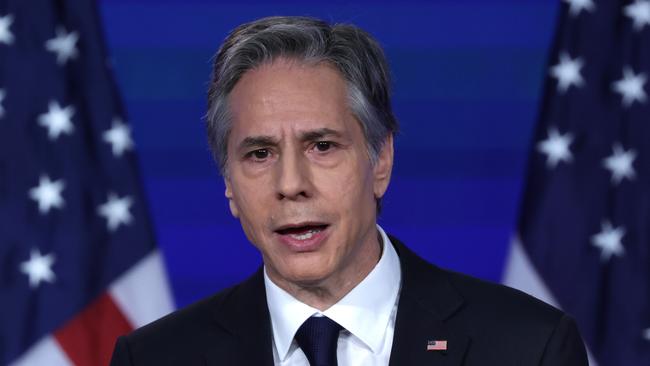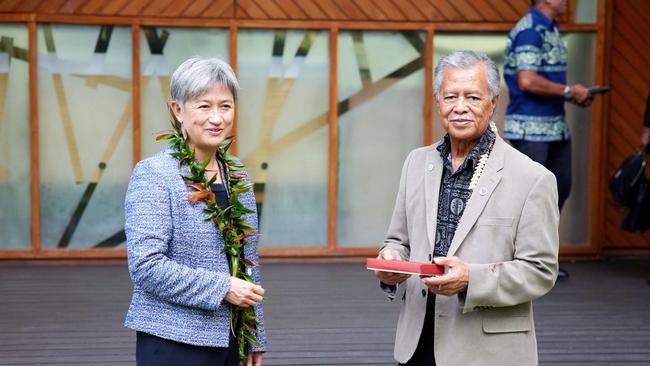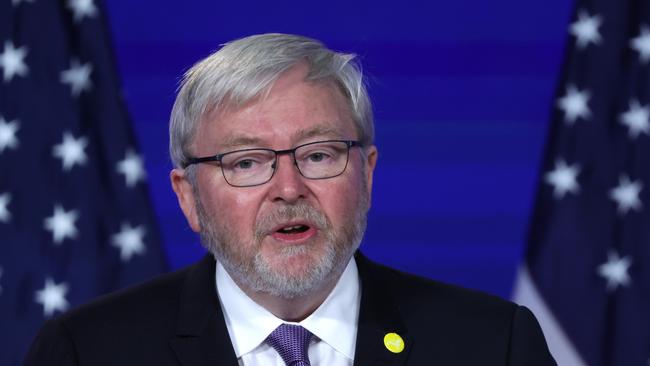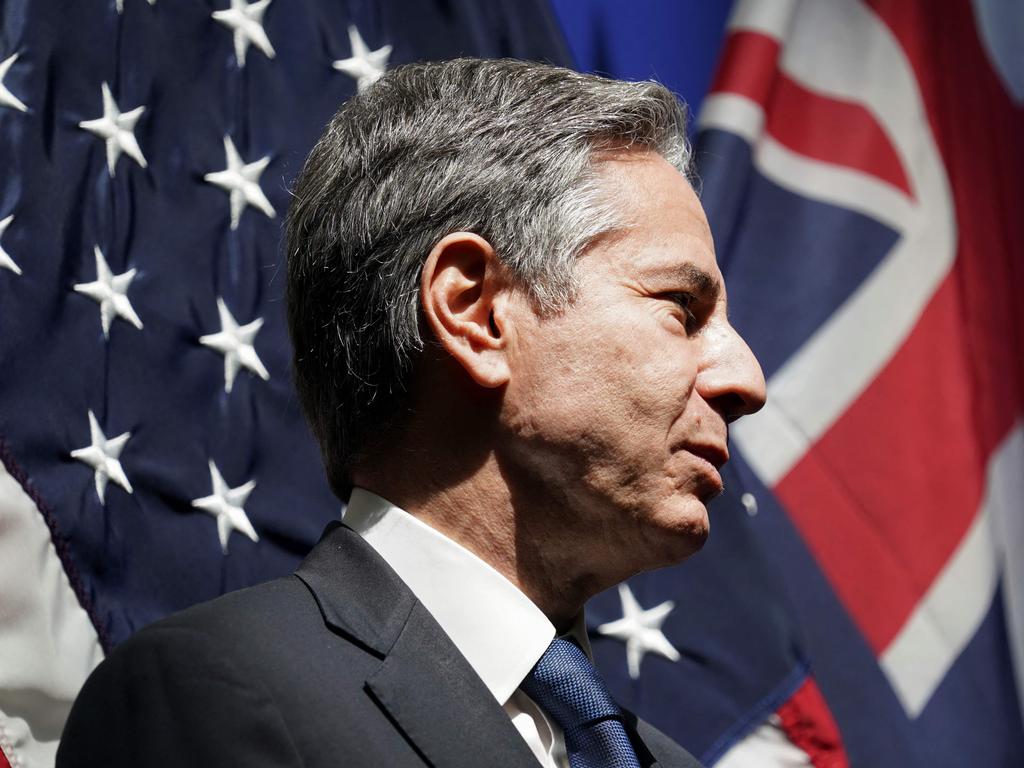US must stand up to China, but no ‘Cold War’ confrontation: Blinken
US Secretary of State Antony Blinken commits the US to standing up against Beijing’s increasingly repressive, aggressive and ‘deeply destabilising’ behaviour.

Secretary of State Antony Blinken has declared the Chinese Communist Party “the most serious long-term challenge to the international order”, committing the US to standing up against Beijing’s increasingly repressive, aggressive and “deeply destabilising” behaviour wherever it risked the peace, security and freedom of other nations.
In a speech that was clearest public articulation of US policy on China yet, Secretary Blinken stressed the US would not and could not contain China’s growing economic, military and scientific power, did not seek any Cold War style confrontation, but would marshal its resources and network of alliances to counter malign Chinese influence.
“We can’t rely on Beijing to change its trajectory … So we will shape the strategic environment around Beijing to advance our vision for an open and inclusive international system,” Mr Blinken said in a lengthy speech in Washington at George Washington University on Thursday (Friday AEST).
“China is the only country with both the intent to reshape the international order and, increasingly, the economic, diplomatic, military, and technological power to do it [and] Beijing’s vision would move us away from the universal values that have sustained so much of the world’s progress over the past 75 years”.
“Rather than using its power to reinforce and revitalise the laws, the agreements, the principles, the institutions that enabled its success so that other countries can benefit from them, too, Beijing is undermining them,” he said, in remarks observers took to be a reminder the US had not been distracted by Russia’s invasion of Ukraine.
Introduced by former prime minister Kevin Rudd, who as President of the Asia Society hosted the event, Mr Blinken said the US wanted to “engage constructively with China” wherever it could, but would not resile from competing with Beijing, promising to boost investment research, education and infrastructure.
“Competition need not lead to conflict. We do not seek it. We will work to avoid it. But we will defend our interests against any threat,” Mr Blinken said, singling out Beijing’s ban on Chinese students and tourists coming to Australia and imposing an 80 per cent tariff on barley exports, after the government called for an investigation in to the origins of Covid-19.
The speech followed President Biden’s trip last week to Korea and Japan, where he met other Quad leaders including prime minister Anthony Albanese, in what is widely seen – certainly by China - as a forum of democracies to counter Chinese influence in the Indo-Pacific.
Mr Blinken reaffirmed the US commitment to the ‘One China’ policy after President Biden, in an alleged gaffe, sowed confusion in Tokyo, where he said the US would commit troops to defend Taiwan in the event of Chinese encroachment on the island democracy, drawing furious response from Beijing.

“We oppose any unilateral changes to the status quo from either side; we do not support Taiwan independence; and we expect cross-strait differences to be resolved by peaceful means,” he said.
The speech also came as China’s foreign Minister Wang Yi stepped up a diplomatic offensive in the Pacific, beginning a tour of eight nations starting in the Solomon Islands, with which China signed an agreement in April that US and Australia officials fear could lead to a Chinese naval base.
Australia’s new foreign Minister Penny Wong launched her own Pacific tour this week, travelling to Fiji, a nation the US and Australia hope to keep outside China’s growing orbit of nations dependent on Beijing for finance and technology.
“We have profound differences with the Chinese Communist Party and the Chinese Government,” the secretary of state said, careful to stress the talents, integrity and achievements of the Chinese people, who he said were welcome to live and study in the US.
Acknowledging the growing power of China’s economy, military and technological expertise, Mr Blinken said the US would “shape the strategic environment around Beijing to advance our vision for an open, inclusive international system” using a strategy “summed up in three words – invest, align, compete”.
The Biden administration has been frustrated by the slow pace of a series of “China competition bills” in Congress that would provide funding for increases in US investment in semiconductors and scientific research to counter China’s growing scientific and technological clout.
“We used to rank first in the world in R&D as a proportion of our GDP – now we’re ninth. Meanwhile, China has risen from eighth place to second,” Mr Blinken said. The House of Representatives and Senate are thrashing out a single version of the bill both chambers can support.

Mr Blinken’s speech complemented an earlier address on China given by Defence Secretary Lloyd Austin’s in December in California, where he explained China was the US military’s “pacing challenge”.
In his introductory remarks Mr Rudd said Chinese President Xi, who is seeking a third term as leader at the Communist Party Congress later this year, was “trying to change the status quo”.
“China under Xi has changed, it has become more powerful, it now seeks to assert that power in region and world in manner we haven’t seen in half a century… ” Mr Rudd said.
Richard Fontaine, director of the Centre for New American Security and a closer observer of Australian and Chinese relations, told The Australian the address was a “good speech that had been in the works for months”.
“The most important element of it was the articulation of a China policy objective: to defend and extend international order and prevent China from undermining it,” he said.
Russia and China signed an agreement of friendship “without limits” in February and conducted joint bomber patrol exercise near Japan as the US president was departing, disappointing analysts who had hoped China’s support for Russia would diminish along with Moscow’s failure to seize Ukraine.
In a nod to bipartisanship, Mr Blinken also lauded the attendance of Republican Senator Mitt Romney, a former presidential candidate, as “a man, a leader, that I greatly admire, a person of tremendous principle”.








To join the conversation, please log in. Don't have an account? Register
Join the conversation, you are commenting as Logout